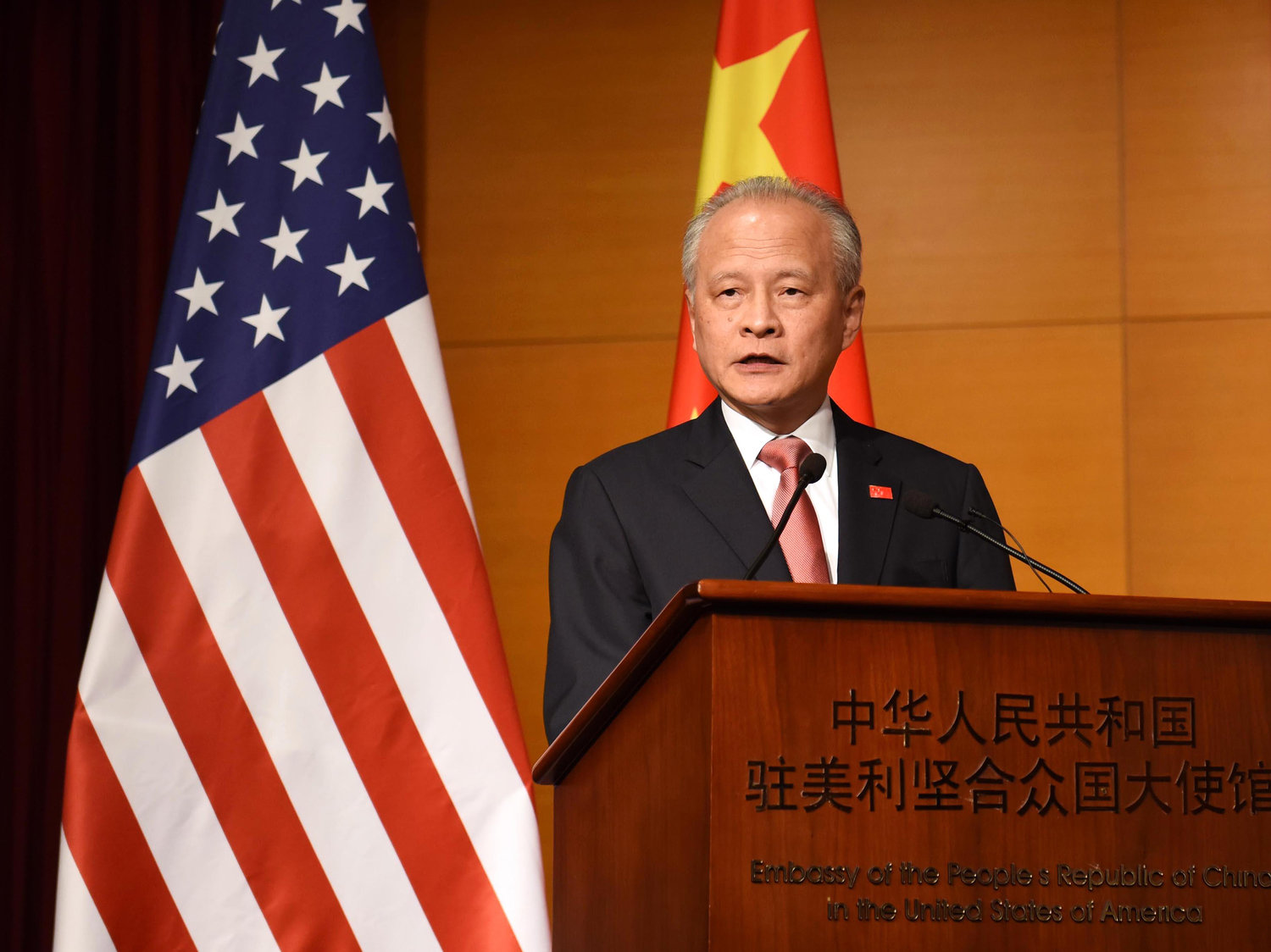Cui Tiankai denies existence of camps in Xinjiang

Cuī Tiānkǎi 崔天凯, China’s ambassador in Washington, gave an interview to NPR yesterday.
Most of the speech seemed quite sensible, and Cui’s silver-tongued responses show why he has been entrusted with China’s most important bilateral relationship. But when asked about Tibet and Xinjiang, Cui lies and dissembles with a Trumpian flair.
Here is a transcript. His major points are summarized below:
- Cui’s main complaints about the Trump administration are that “the U.S. position keeps changing all the time so we don’t know exactly what the U.S. would want as priorities,” and that the Americans are trying to make a new deal where “the U.S. will get 100 percent and China will get zero.”
- Cui admitted to following Donald Trump’s tweets: “Honestly, I think if it’s written by the president, it has to be meaningful. People have to take them seriously.” Cui also says he has read Bob Woodward’s book Fear in order to better understand the president.
- It is difficult for American journalists to want to go to sensitive areas like Tibet, “because it’s very high altitude and the climate could be very tough there,” and the environment needs to be protected from too many visitors.
- Asked about Xinjiang, Cui denied there were “camps” but said there were “violent extremist groups” trying to “create a situation like the ISIS in that part of China.” In order to stop that, he said, “we have to make sure that people have means to build a better life.”
I’m not saying there are camps. I think of their efforts to help people to learn skills, techniques to build up their economic capability and so on. And of course we have to take measures to prevent terrorism from spreading all over the place.
- On the South China Sea: “So we have a long-standing sovereignty over these islands, but we are also aware there are some territorial disputes. And now we’re ready to work with other countries to have negotiations to have a final solution to such disputes.”






